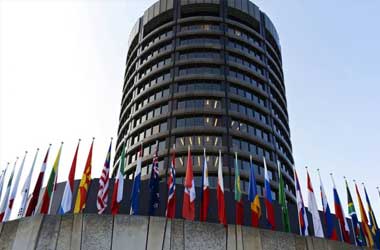
The Bank of International Settlements (BIS) has said that the recent market selloffs in various global financial markets are going to be the first of many.
This is because of tighter monetary regulations and the threat of a coming economic downturn. According to the BIS, this heralds the end of the era of easy money for those on the global marketplace.
This year has not been very good for a lot of stock markets. European and Asian stocks have gone down in value and US stocks going into the red. This is a severe change from the 10-year bull market that the world has been experiencing.
The final quarter of this year saw a lot of tension in the global market as a threat of a trade war has increased for the United States. As a result, central banks have been preparing for bad times.
According to Claudio Borio, the head of the BIS’ monetary and economic department, this is because the emerging trade tensions and political uncertainty have placed a lot of monetary policies in jeopardy. There are numerous challenges facing the global market today which needs to be addressed. This includes the threat of rising inflation as a weaker European banking sector faces the problem of increasing corporate debt from the US.
BIS reports are seen as a good barometer of upcoming economic trends and the organization is not very optimistic about the future. It is also indicative of what most central banks are contemplating and can point to where they lean on various issues.
The BIS is now pointing out that financial cycle studies show that recessions often follow financial booms. This trend has been consistent since the 1980s. The recent decade-long growth the market has experienced can mean that the market is about time to experience a downturn.
Increasing US Interest Rates
What does not help is that the US dollar is being squeezed by rising interest rates. With the US dollar being the funding currency of choice, it becomes difficult to boost the capital of companies who have the US dollar as their base currency. Fortunately, the ability of non-US banks to raise dollar funding in their home countries has increased, higher than the levels found during the 2009-2009 financial crisis.
This increased dollar source can provide dollar liquidity even during a financial crisis, which can blunt the demand to a certain extent. Cross-border lending has also increased from three percent in 2008 to 12 percent as of now. This provides more funding for many emergent companies in various parts of the globe and help them better prepare for a looming financial crisis.




